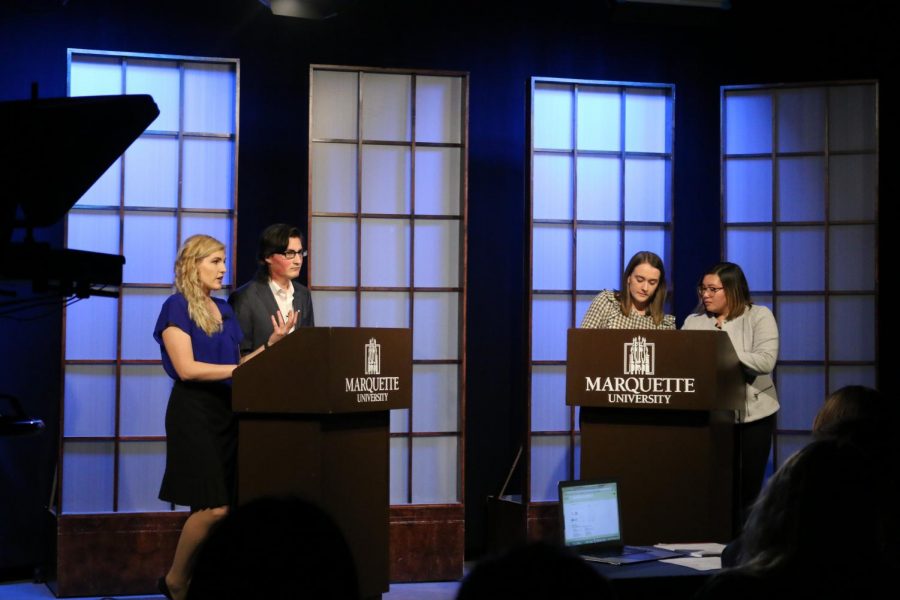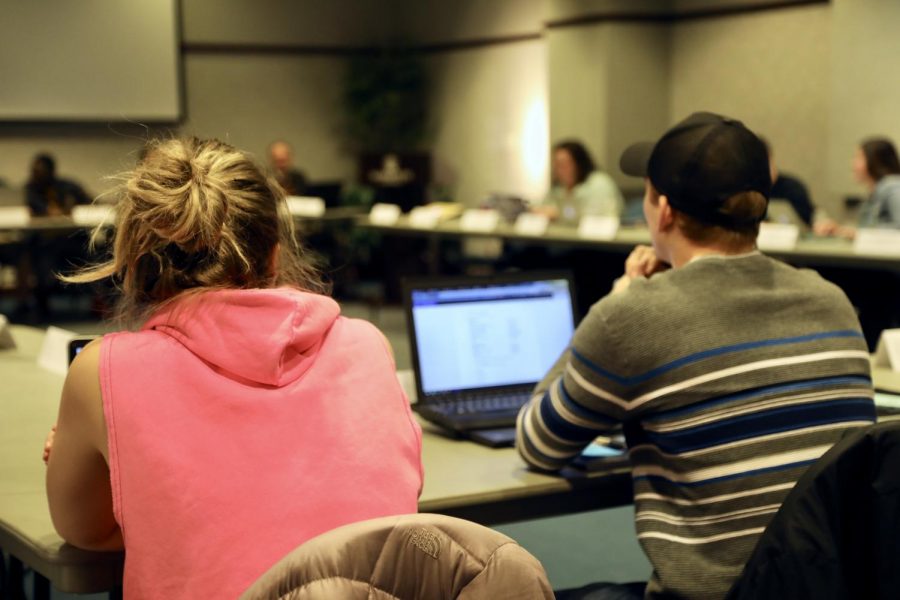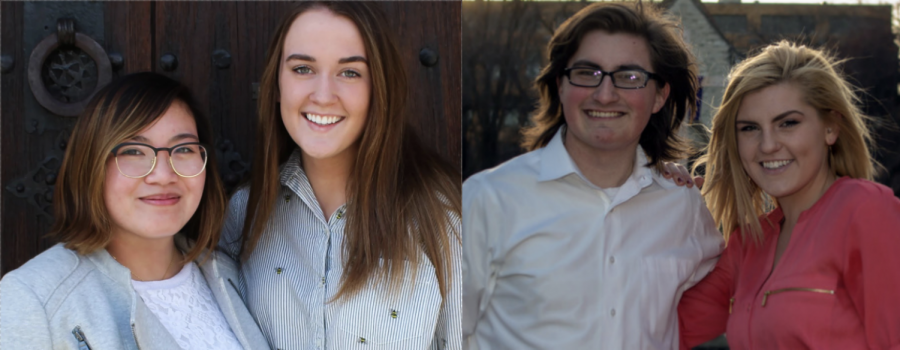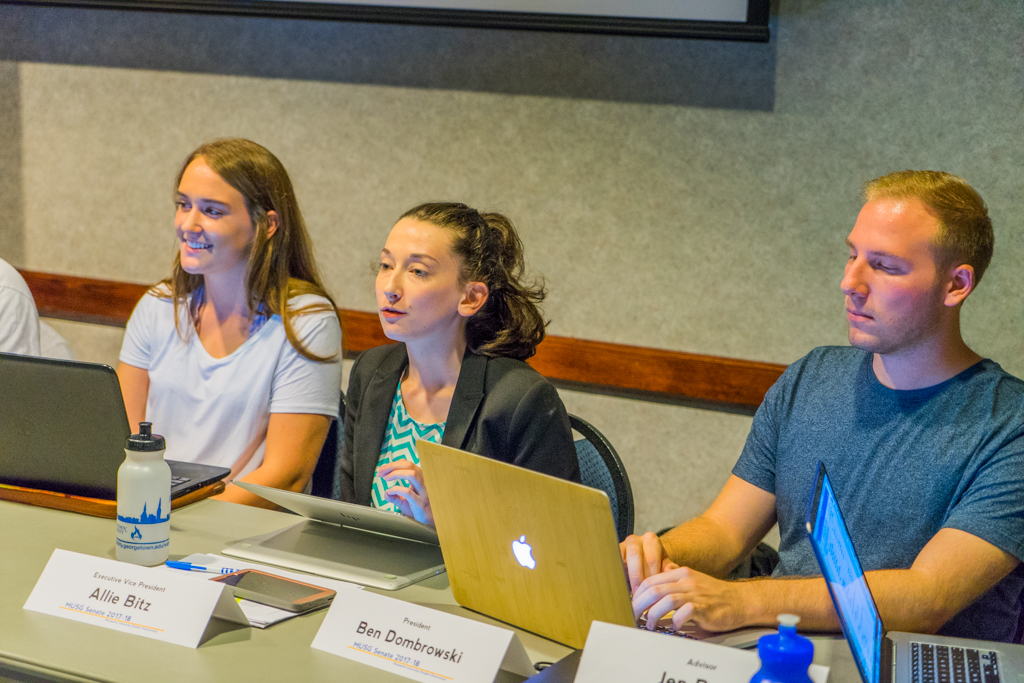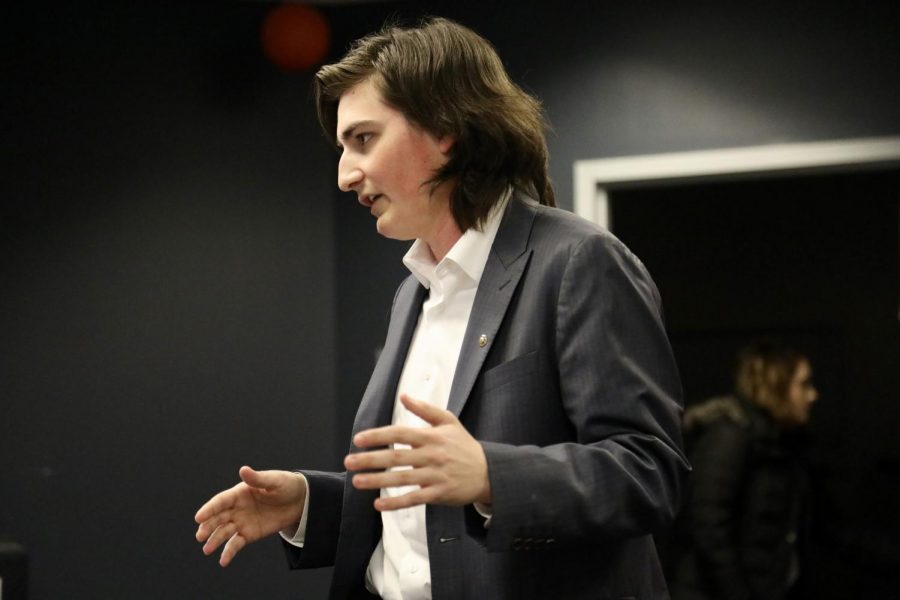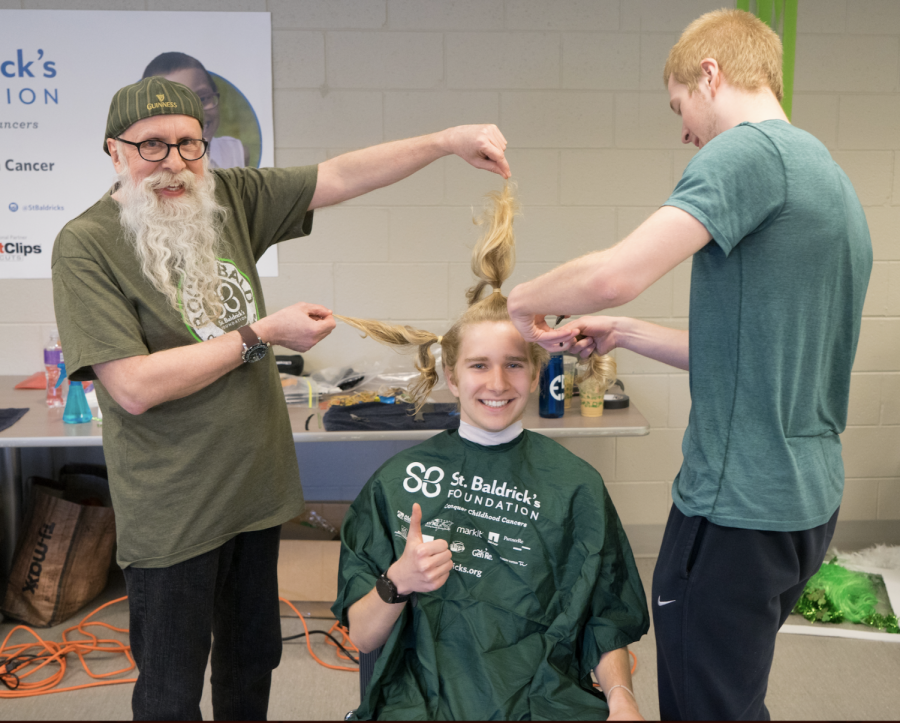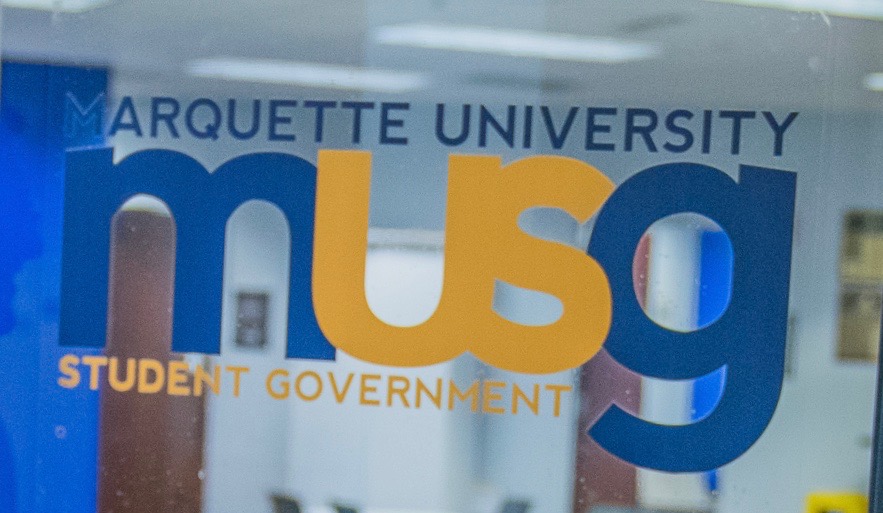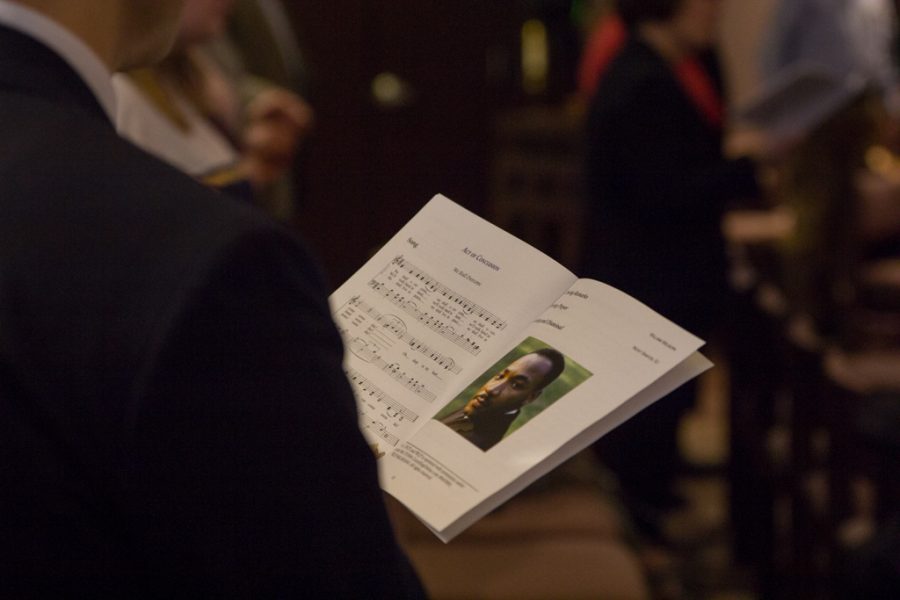The annual Marquette University Student Government presidential debate took place March 25 in Johnston Hall. Meredith Gillespie, a junior in the College of Arts & Sciences, and Valerie Del Campo, a junior in the College of Communication, are running against Erin Murphy, a junior in the College of Engineering, and Joshua Steinfels-Saenz, a junior in the College of Business Administration. These candidates ran for president and executive vice president, respectively.
The president is a representative leader of student government, according to the MUSG website. The president delegates tasks and roles to other members and enforces the constitution and by-laws of MUSG. The executive vice president serves as the chair of the Student Organization Funding Committee and assists the president with assigned duties.
Gillespie and Del Campo aim to focus on on-campus mental health. Del Campo said the goal of their platform is “making sure people on campus know they are not alone.”
Gillespie said she wants to increase support and awareness of mental health because it affects a large part of the student population.
Murphy and Steinfels-Saenz took a different approach to their campaign. They focus on “Three A’s”: accessibility, accountability and assessment.
“We want to dig deep on all the issues that students really struggle with in day-to-day life,” Steinfels-Saenz said. “These issues are too often overlooked by MUSG. We want to challenge MUSG and the university to look more into the student’s issues.”
“There is a large disconnect between MUSG and the student body,” Murphy said.
Sexual assault on campus, gun violence, diversity and student organization funding were all topics brought up during the debate.
Both candidates said they would like to concentrate their attention on bettering the process of student funding.
“The one thing we want to improve is making sure all these organizations have what they need,” Del Campo said. “It’s also just communicating with each group on campus. A lot of the problem is that a lot of student organizations don’t feel comfortable coming to MUSG.”
Steinfels-Saenz said he would like to make the process of student organization funding more transparent.
“Furthermore, I would love to see pushing back the fall allocation closer to the fall semester,” Steinfels-Saenz said. “It’s virtually impossible to get proof of costs for those events this far out.”
Gillespie and Del Campo said they hope to open more 24-hour study rooms on campus. They also said they believe the Counseling Center needs to be improved. They also talked about incorporating theology courses focusing on religions other than Catholicism into the curriculim that would count toward the 2000-level required theology course.
Murphy and Steinfels-Saenz said they hope to diversify the theology 1001 class, potentially separating it into two groups: One that is more familiar with religion, and one class that is less familiar with religion.
Murphy and Steinfels-Saenz also said they want to address the lack of transparency in MUSG.
“In general, everyone should feel like they have a voice,” Steinfels-Saenz said. They said they aim for students to take advantage of a concerned students forum during next year’s Senate meetings.
In terms of gun violence, both tickets believe RAs should have active shooter training.
Both presidential candidates said that they were grateful to have a chance to voice their platforms, and that they are excited about the upcoming election.
Gillespie said she did not know what to expect going into the debate.
“I thought it went really well,” Gillespie said. “I loved the answers from both of the sides, and it was great to hear both of the sides.”
Murphy said she felt confident going into the debate.
“I’m going to be confident in the answers that I gave,” Murphy said. “I know students will see us out on the campus area promoting our campaign and seeing what we’re about and how we want to connect with students individually.”
Voting takes place on March 27. Students can cast their votes from 12 a.m. to 10 p.m.

